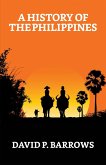In "The Lost Ten Tribes, and 1882," Joseph Wild delves into the enigmatic history and mythology surrounding the Ten Lost Tribes of Israel. Blending rigorous scholarship with poetic prose, Wild meticulously examines historical, archaeological, and biblical texts to explore the fate of these tribes after their Babylonian exile. His narrative style is engaging, interlacing compelling anecdotes with a critical analysis of the scholarly discourse, all while offering a unique perspective on the intertwining of history and faith. Published during a period when interest in biblical prophecy and cultural identity was heightened, Wild'Äôs work resonates with contemporary questions about lineage and belonging. Joseph Wild was not just a historian but a man deeply stirred by the complexities of faith and identity in the modern era. His background in theology and keen interest in biblical archaeology propelled him on a quest to uncover truths that many had dismissed as mere legend. Wild'Äôs profound commitment to understanding the spiritual significance of the lost tribes reflects his own journey through cultural heritage and religious exploration, contextually enriched by the socio-political climate of the late 19th century. I highly recommend "The Lost Ten Tribes, and 1882" to both scholars and lay readers interested in the rich tapestry of Jewish history and the enduring mysteries that shape cultural narratives. Wild'Äôs insightful analysis and thought-provoking conclusions invite readers to reconsider the intersections of history, faith, and identity, making this book an essential contribution to the fields of religious studies and history.
Dieser Download kann aus rechtlichen Gründen nur mit Rechnungsadresse in A, B, BG, CY, CZ, D, DK, EW, E, FIN, F, GR, H, IRL, I, LT, L, LR, M, NL, PL, P, R, S, SLO, SK ausgeliefert werden.
Hinweis: Dieser Artikel kann nur an eine deutsche Lieferadresse ausgeliefert werden.









